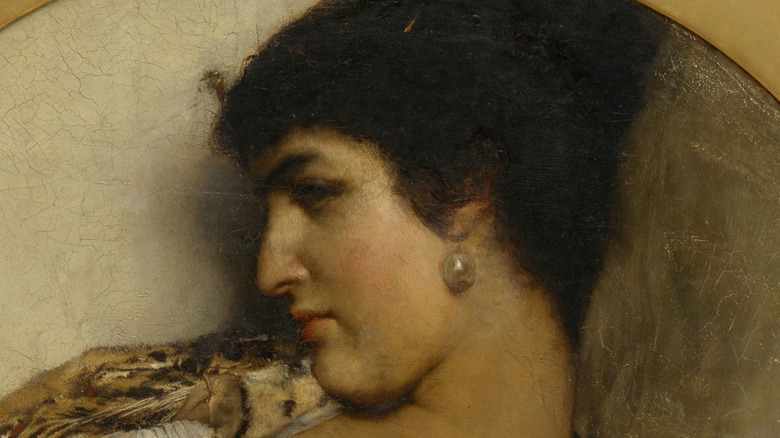What You Didn't Know About Cleopatra's Writing
Cleopatra, Queen of Ancient Egypt, is one of the most well-known leaders in history, with both her political and romantic lives inspiring hundreds of books, plays, and movies over the years. Renowned for her ambition and beauty, Cleopatra was also a capable intellectual who passed down several influential writings that are still referenced and analyzed today, centuries after her apparent suicide.
According to Facts.net, Cleopatra wrote a medical paper titled "Cosmetics." The treatise detailed a number of findings the queen and her Egyptian subjects discovered in the fields of medicine and pharmacology, from major procedures to minor problems like dandruff and hair loss. Cleopatra also heavily focused her research on keeping herself healthy so she could be fit to rule her kingdoms and dynasty. Perhaps this isn't surprising, given her alleged intricate beauty regimens that had the Egyptian queen bathing in donkey milk while maintaining a strict diet to remain in peak physical condition for her people — and her lovers.
Cleopatra was respected as a medical expert
According to Hypotheses, Cleopatra wrote extensive recipes on how to treat baldness with a variety of techniques, including using insects such as flies to treat alopecia. Whether the strange treatment ever actually worked seems uncertain, but Cleopatra has been referenced in works on medicine — and insects — centuries after her demise, showing the influence and strong reputation of the woman.
That reputation was not just centuries in the making. Her stature as Queen of Egypt and the powerful men she loved, like Julius Caesar and Marc Antony, meant that she was one of the most well-respected women in the world during her time; it was also a time when women were considered to be the medical experts of the household. While no one is pounding flies into their hair to cure baldness these days, the queen's intellect and dedication to research are apparent through her "Cosmetics" and other medical writings, which lead many scholars to respect her as a medical expert along with her royal status.

